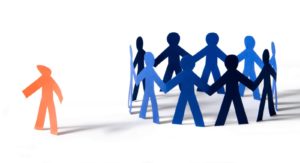 The ways in which HIV-related stigma and discrimination are manifested and experienced are complex and varied. Many different measures from different perspectives are currently used to monitor HIV-related stigma and discrimination.
The ways in which HIV-related stigma and discrimination are manifested and experienced are complex and varied. Many different measures from different perspectives are currently used to monitor HIV-related stigma and discrimination.
To better understand the status of HIV-related stigma and discrimination and progress towards their elimination, support advocacy for addressing HIV-related stigma and discrimination and highlight data gaps, UNAIDS is coordinating the development of summary measures of HIV-related stigma and discrimination. Please see the concept note for more background information.
Starting on 19 August 2019 for a period of three weeks, various elements of the draft measures will be discussed. A few key questions will guide the moderated discussion each week. Inputs and recommendations from each week will be shared at the start of the following week and used to inform the next element of the measures to be discussed.
To participate in the consultation please read more information here.
Through the 2016 Political Declaration on HIV and AIDS, the global community committed to eliminating HIV-related stigma and discrimination by 2020 “for the equal enjoyment of all human rights and equal participation in civil, political, social, economic and cultural life, without prejudice, stigma or discrimination of any kind” of people living with, at risk of and affected by HIV.
The proposal is to develop one summary measure of HIV-related stigma and discrimination and four accompanying summary measures of stigma and discrimination experienced by sex workers, gay men and other men who have sex with men, people who inject drugs and transgender people related to factors other than HIV. This will make it possible to capture the diverse forms of stigma and discrimination that may be experienced by key populations most affected by HIV that may not be directly due to HIV but that have important impact on the HIV response.
This virtual consultation aims to encourage broad participation, particularly of people living with and affected by HIV, gay men and other men who have sex with men, transgender people, young people, sex workers, people who use drugs and women, from all regions. Contributions through this consultation will be used to inform the development of the measure(s) and ensure they are people-centered, reflecting the lived experiences and realities of people, and meaningful to inform programmatic action.
A summary of inputs and recommendations from the consultation will be shared in September 2019.



